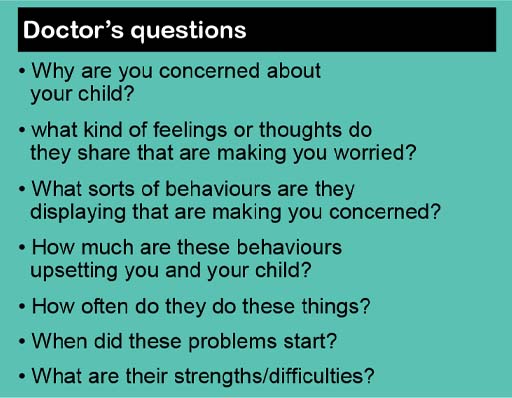1 Responding to concerning behaviours
It can be hard to know what to do and how best to react to a young person who is displaying worrying behaviour. Given the breadth of issues that can be presented that might relate to emotional distress, it can be hard to provide advice on each situation, and if you are worried it is best that you find someone you trust to talk to.
Self-harm is one of the behaviours that a young person who is experiencing mental distress may display and it is one that can be particularly worrying for those around the young person. In Session 7, we also heard the young men talk about how they felt this behaviour may be influenced by trends on social media. While this can be difficult to explore, it clearly causes a lot of concern for many carers, parents and educators. In this session, we will use it as an example of how to respond to a young person you are worried about.
Parents who notice changes in their child’s behaviour may be the first to realise the need for professional help. The typical way most people begin the formal process of accessing professional help for a young person is to make an appointment with a GP. If you are involved in doing this, it might be helpful when making the appointment to ask if any of the doctors or practice nurses have a special interest in mental health.
It is easy to feel the time pressure in a 10-minute GP appointment and the more prepared you are, the better. To prepare for an appointment with the GP to discuss a young person’s mental health, it will help to make some notes on any questions you’d like to ask or anything you especially want to tell the doctor. You might even ask the young person to keep a diary of the challenges they are dealing with.
Activity 1: Preparing for a GP appointment
When people visit a GP it can be hard to remember what they wanted to say. This can be particularly the case when dealing with a sensitive subject such as mental health. It can be hard to find the right words to describe what is creating the feeling of concern. One of the key ways in which you can make the most out of a visit to the GP is to prepare for the visit in advance.
These are some of the questions the doctor may want to ask you about the young person’s problems:

Now visit the following website: Talking to your GP about mental health. Make a note of the key things they say can help you to prepare for a GP appointment in which you, or someone you care for wishes to discuss mental health.
Answer
From the website, we noted that it was important to prepare. Write down what you want to say. Find words that help explain how you are feeling, or print out something that captures what is going on for you. It is also possible to ask for a longer double appointment.
In the video, Mind also suggest that you might want to bring someone with you. This can be particularly important when we are supporting a young person. However, it is also important to note that it is possible for young people to attend the GP alone, and this may be one way of encouraging the young person to seek help. Especially if they are reluctant to share what is going on for them.
GPs and some specialist nurses are able to make a referral to a counsellor employed in the community, or to more specialist services, depending on need. If the young person you are caring for is not referred to specialist services, or is added to a long waiting list, there are still other things that you can do to help support them. You will consider these later in this session.
